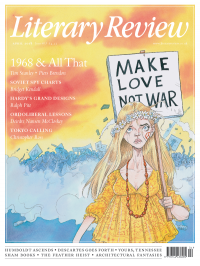Martin Salisbury
The Art of Collaboration
Recalling his first impressions of the work of his long-term collaborator E H Shepard, A A Milne confessed to having remarked to the art editor of Punch magazine, ‘What on earth do you see in this man? He’s perfectly hopeless.’ It is not unusual for writer–illustrator partnerships to begin inauspiciously, but few go on to become so enduring and successful, as is evident from the glorious exhibition at the V&A, ‘Winnie-the-Pooh: Exploring a Classic’, which comes to a close this month. The creative marriage of Milne and Shepard demonstrates what can be achieved when writer and artist are on the same wavelength. Their partnership evolved to create a fusion of word and image on the page, where each was interacting with the other in a carefully choreographed delivery of meaning. In the early 1920s this ‘show and tell’ approach was highly innovative and it is one to which the increasingly sophisticated modern picturebook is indebted.
Illustration is often described as a hybrid, falling somewhere between art and design. The word itself is usually defined in terms of ‘making clear’ or ‘visually explaining’. But the relationship between image and text is often rather more complex than that, the best illustrators augmenting and enhancing rather than

Sign Up to our newsletter
Receive free articles, highlights from the archive, news, details of prizes, and much more.@Lit_Review
Follow Literary Review on Twitter
Twitter Feed
In fact, anyone handwringing about the current state of children's fiction can look at over 20 years' worth of my children's book round-ups for @Lit_Review, all FREE to view, where you will find many gems
Literary Review - For People Who Devour Books
Book reviews by Philip Womack
literaryreview.co.uk
Juggling balls, dead birds, lottery tickets, hypochondriac journalists. All the makings of an excellent collection. Loved Camille Bordas’s One Sun Only in the latest @Lit_Review
Natalie Perman - Normal People
Natalie Perman: Normal People - One Sun Only by Camille Bordas
literaryreview.co.uk
Despite adopting a pseudonym, George Sand lived much of her life in public view.
Lucasta Miller asks whether Sand’s fame has obscured her work.
Lucasta Miller - Life, Work & Adoration
Lucasta Miller: Life, Work & Adoration - Becoming George: The Invention of George Sand by Fiona Sampson
literaryreview.co.uk